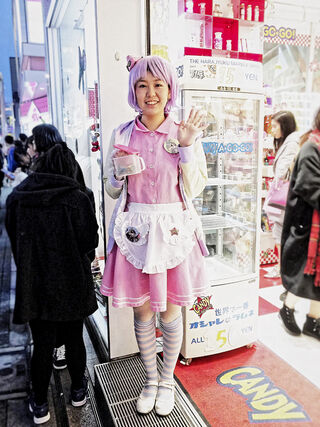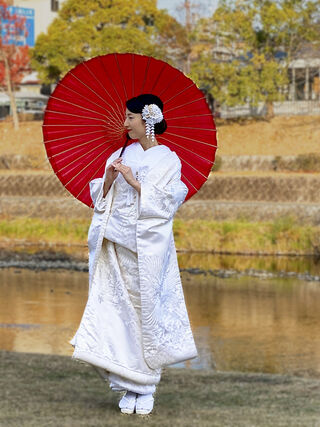Depression
What Do You See When You Look in the Mirror?
What you see in the mirror reveals how you feel about yourself.
Posted May 5, 2020

Several months ago, I went to see a kabuki world premiere performance of Snow White in Tokyo, Japan. Kabuki is a traditional form of popular theatre that features drama, humor, music, lavish costumes, stylized makeup, mime, singing, dancing, brilliant acting, and evocative sets. Luckily, you can rent a portable translator at the theatre, so you can follow the action and the story.
When they announced a world premiere of Snow White, it sounded fresh and original, and I already knew the story, so no translator needed. I grabbed tickets.
In kabuki, men play all of the roles: young, old, Samurai, horses, heroes, and… women. It’s hard to believe that the female characters are all portrayed with subtlety, great skill, and sensitivity by the opposite sex.
It was exciting to see Snow White’s cruel and narcissistic stepmother looking in the full-length mirror and asking, “Mirror, mirror on the wall, who is the fairest of them all?” And, as you all know, the mirror reassured the Queen that she was the most beautiful in the kingdom. But her vanity wasn’t satisfied for long.
Pretty soon, the insecure woman would engage the mirror again, asking for confirmation of her beauty. And then, one day, the stepmother got an unexpected answer: Snow White is the fairest of them all. She flew into a murderous rage, and Snow White hid out in the forest with the seven droll dwarves to save her life.
I loved the brilliance of the production. One actor played the Queen, and another actor played his image in the mirror. The audience was spellbound.
During the intermission, I began to talk to a few young Japanese women. I told them that I have never, anywhere in the world, seen women who were more stylishly, impeccably dressed than the women in Japan. They thanked me and said that this production of Snow White really resonated with them, and it also made them sad. I inquired why they felt sad, and their answers were surprising.
“We have to wear high heels to work because that’s what the men think makes us look beautiful and sexy,” one of them said.

“And we can’t wear glasses. Men don’t like glasses, so we must wear contacts or go without glasses, even if we need them,” a second explained.
“And we can’t go out without makeup. I spend so much time on my hair and makeup. I wish I didn’t have to do it, but that’s what’s expected. We have to look perfect, and it’s what men expect. And I think we expect it of ourselves and each other.”
The last one said there was enormous pressure to wear the latest styles and look fashionable. Japanese clothes are very high quality, and it costs a lot of money to keep up with the trends.
No wonder they felt sad. They were under intense pressure to be perfectly dressed, made up, looking cute and sexy with heels, no glasses, heaven forbid they should put on weight. When I asked the first woman why they succumb to the pressure, she said Japan is a homogeneous society, and people don’t break the rules. “And if you want a husband, you have to conform and do what’s expected of you. When the Queen looks in the mirror in Snow White, that’s how I feel too. I have to look, dress, and behave like the fairest in the land.”

Long after the thunderous applause had died down, I thought about what the girls said. We are bombarded with messages that tell us if we are thin enough, beautiful enough, dressed coolly enough, we will be reassured by our mirrors about how desirable we are.
I began to ask women I had met around the world what they saw when they looked in the mirror. The answers were distressing: “I don’t like what I see,” “I need plastic surgery on my lips and neck,” “I look old and ugly,” “I’ll never find a partner,” “I have to diet,” “I’m not sexy enough,” “I have the wrong body,” “I have cellulite; I need lipo,” etc.
When so many of us are staying at home, not dying our hair, wearing baggy and comfortable clothes, dispensing with makeup under our masks, craving sugar, reducing exercise, I wonder what the rest of you see when you look in the mirror? You put on a mask to go outside, but we have all, in a sense, taken off our masks, and we see ourselves as we are. And with most or all distractions falling away, we experience who we really are.
How do you feel about that person you see in the mirror? Do you like yourself? Are you hypercritical and focused on each perceived flaw? Did you feel old? Unattractive? Or do you shrug and accept who and how you are?
Self-acceptance is a tough nut to crack. Maybe you were raised by at least one critical parent, or you had your confidence shaken in school or by cruel friends. Perhaps you didn’t have friends, and you blamed yourself. Maybe by the time you were 13, you were already thinking about plastic surgery to change your nose, your toes, or anything else that eluded your desire for perfection.
And when all of the extraneous activity has been stripped away, and you are alone, what is in your mind? You may be obsessed with celebrity gossip. Perhaps you are bored and don’t care about anything. Maybe you obsessively check social media to see who likes you, follows you, flatters you. Is there more to your life than Instagrammed coffee mugs and pet pictures? If there isn’t, then do you accept that about yourself and like yourself just the way you are?
If you are obsessed with looks, one day, the mirror is going to give you an answer you don’t like. You will have wrinkles, crinkles, turkey neck, bulges, thin hair, and there will be many people who are much fairer than you. Will you like yourself or be consumed by rage, competition, envy?
Why wait until then? Look in the mirror now, and see if you can’t find love for yourself, exactly, precisely the way you are. It takes practice, but the rewards are monumental.




